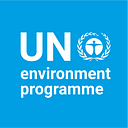Take the oceans video challenge now from home
Ready, steady, action!
Due to the COVID-19 pandemic, many across the world are figuring out how to move forward with day-to-day activities as the plans to address the health, socio-economic and recovery issues take shape. But nature, now more than ever, needs us to pay attention to its warning signals and to take care of it so it can take care of us.
With this in mind, creative minds at home — teachers, students, parents, children and families — are invited to bring to life, through video skills, videos on why the world needs to save an important component of the planet’s rich biodiversity. For this online challenge, the focus is the world’s magical coral reefs, home to a quarter of sea life.
Get involved
The task is to create a short video about why the world needs to urgently support greater ocean protection and climate action. We want to know what you’ve learnt about how coral reefs — one of the most biodiverse places on earth — provide invaluable services that support our human well-being, and even make life on earth possible.
The Save the Ocean Creative Challenge is organised by The Ocean Agency, Adobe and the United Nations Environment Programme (UNEP), as part of the Glowing Glowing Gone campaign — a global campaign using creativity and colour to rapidly accelerate ocean conservation and climate action.
This new challenge is designed to help participants gain skills to plan, sequence and craft an informative and persuasive video, while at the same time developing knowledge about oceans, coral reefs and the impacts of climate change. It is also a great opportunity to increase family and community learning engagement and to share with social networks, while practicing physical distancing to help flatten the coronavirus curve.
Background
“Coral reefs are among the world’s most vulnerable ecosystems to climate change. Scientists believe we have lost 50% of original coral cover and with projected warming, we stand to lose another 70 to 90% in the coming decades. What many people also don’t know is that coral reefs are also known as the medicine cabinets of the sea as many life-saving medicines, including for treating viral infections, are made from bioactive compounds found in coral reef organisms,” says UNEP marine ecosystems expert Gabriel Grimsditch.
He adds: “During these days of physical distancing and learning from home, we have a great opportunity to learn more about these amazing ecosystems through online activities such the Save the Ocean Creative Challenge”.
The digital challenge seeks to empower people to become “master storytellers and marketing moguls” by using creative software, video footage, imagery, text, and graphics provided.
Richard Vevers the CEO of The Ocean Agency says: “During this time of social isolation, we’re looking for people, young and old, to unlock their creativity and help inspire support for ocean protection and climate action whilst learning valuable new skills — from teachers running remote classes to creative professionals who have spare time, or even parents looking for a fun activity for their little ones! Everyone’s invited. We can’t wait to see what you come up with!”
Some of the resources needed to get started include: a computer, mobile phone or tablet, a connection to the internet and the video editing tool Adobe Premiere Rush or Adobe Spark Video installed on all devices to be used.
Also needed is access these online resources: Information on glowing corals, curated video clips and audio files, and high-quality coral reef images. Award-winning cinematographer David Hannan and Reef Check France donated the footage as part of The Ocean Agency’s Image Bank.
“Creativity is an essential skill, and challenges like this give young people amazing opportunities to get creative while deepening their understanding of hugely important issues. Creative teaching methods can deliver positive outcomes across all subjects and make learning more fun at the same time,” says Simon Morris, Senior Director, Digital Media Marketing, Adobe.
Ready to go? Click here to get started and see the resource kit available here.
To join the challenge, final videos may be sent by email it to hello@glowing.org or uploaded to social media with #GlowingGone tagging @GlowingGone. Selected videos will be featured on the Glowing Glowing Gone site.
Follow @GlowingGone on Instagram for more details.
